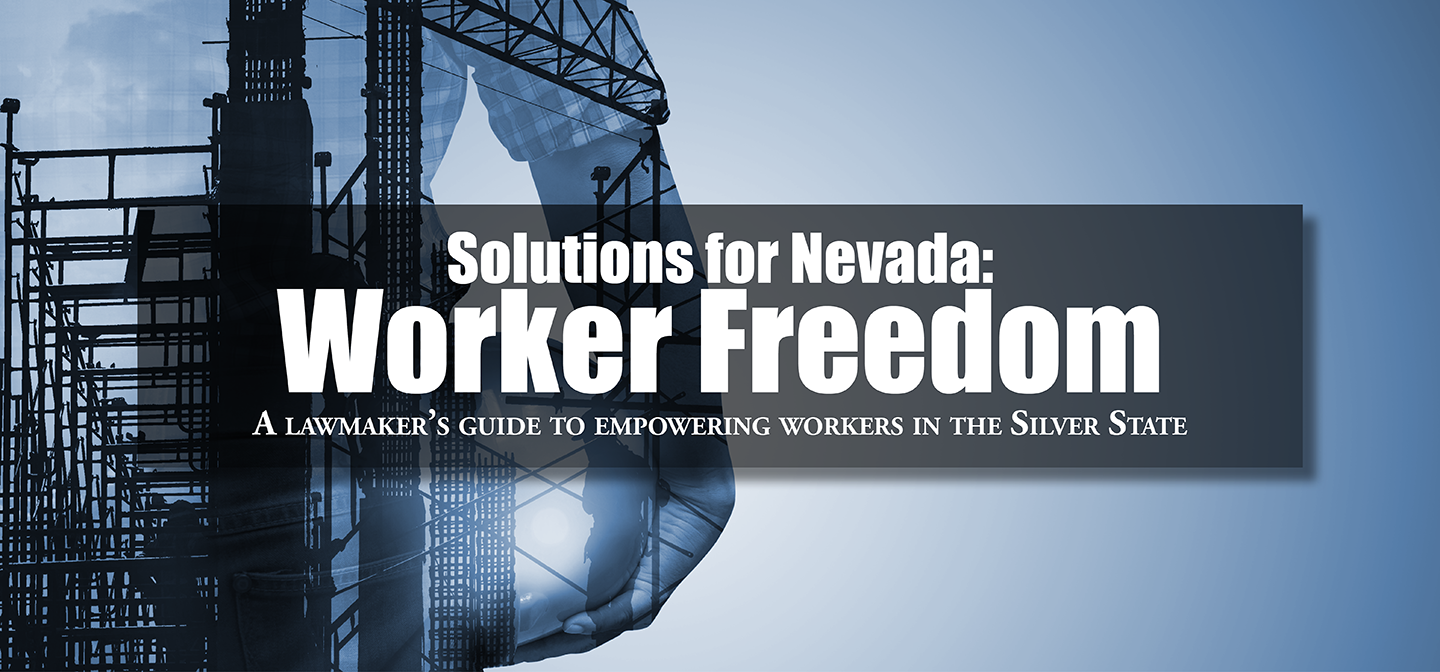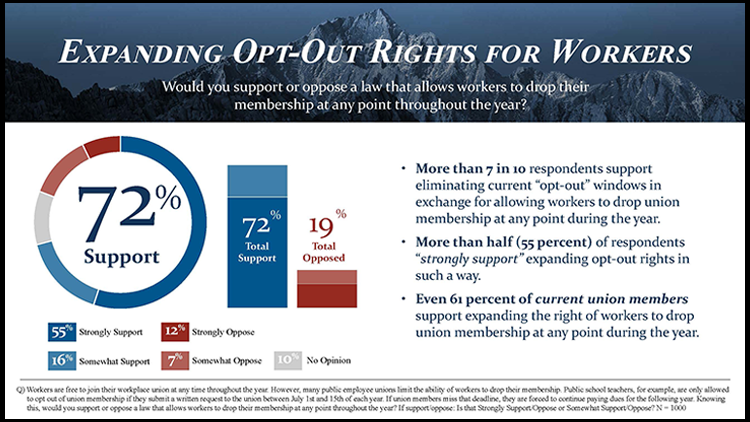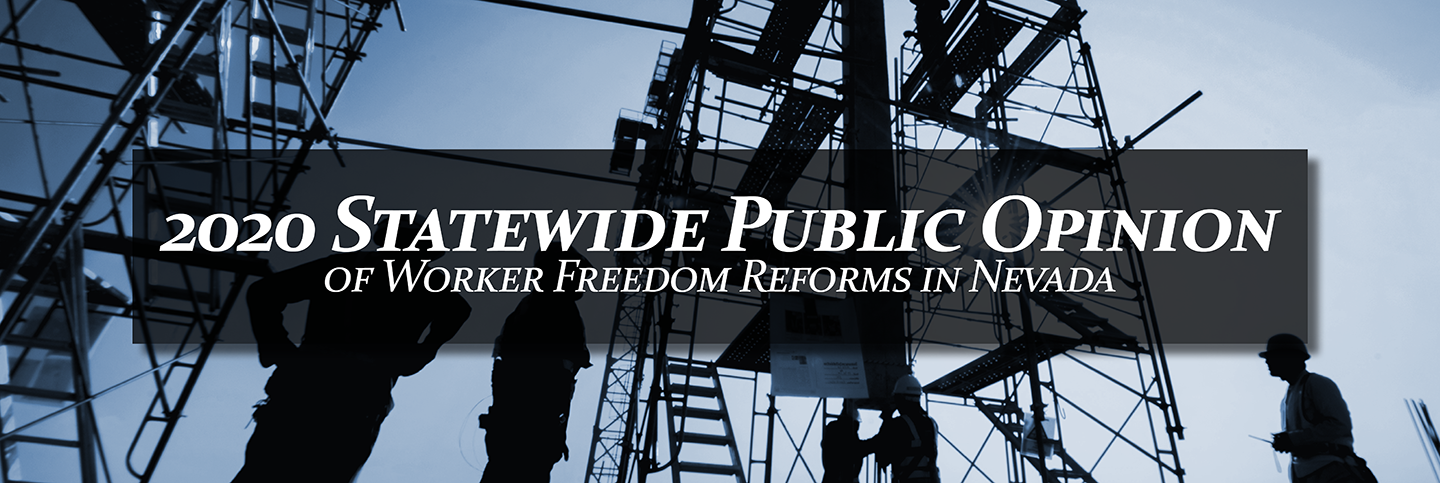
Workers deserve the right to walk away from a union
Just ahead of National Employee Freedom Week (August 16-22) a majority of union members at the Boulder Station casino affirmed their desire to leave the union—and just like that, the casino informed the union that their services were no longer needed. Station employees now get to negotiate with their employer directly, while saving several hundred dollars annually in union dues.
Unfortunately, most government workers are denied this basic freedom. Public-sector workers are often trapped by a rigid “escape clause” that limits their ability to opt-out to only 15 or 20 days out of the year. Public unions, meanwhile, remain entrenched regardless of how workers feel about the services they offer or how many workers refuse membership. In fact, when asked about it by Nevada Policy, Nevada’s Employee Management Relations Board found “no instances where a local government attempted to decertify a union,” despite acknowledging that several unions currently operate in Nevada without majority support from employees.
For example, roughly half of the K-12 public education workforce has opted out of union membership, and there are some bargaining groups within the education system where well over half of workers have stopped paying dues—such as the Clark County School District support staff, where only 29 percent of workers are actually dues-paying members of the local union.
And yet, despite state law indicating that a clear majority support is needed for a union to remain certified as the “exclusive bargaining agent” for workers, these unpopular unions continue to operate with impunity—representing all workers, even the majority of whom have stopped paying dues.
Part of the reason for this is because Nevada does not require periodic recertification of unions to ensure they continue to receive majority support.
Another part of the problem, however, is strictly political. After all, government employers—politicians and elected officials—are the ones who are expected to call for a vote to decertify a union if it appears to have lost support from a majority of workers. Those very same politicians and government officials, however, receive tremendous political and financial support from unions in the form of campaign contributions and get-out-the-vote efforts, thereby incentivizing them to let unaccountable and unpopular unions continue to represent workers.
The result is an environment where unions in the public sector have little incentive to ensure they are acting in the best interest of the very workers they represent. And while workers do have the ability to “vote with their wallet” and stop paying dues, the unions have worked overtime to make sure the process to drop membership is as cumbersome and inconvenient as possible—trapping many workers into financially supporting unions with which they disagree, in ways which violate those workers’ First Amendment rights.
Teacher unions, for example, only allow workers to drop union membership during a mere two-week window of time in the middle of summer, despite such “opt-out windows” being struck down by courts elsewhere as plainly unconstitutional. And teacher unions aren’t the only ones flouting the constitutional rights of workers. The National Right to Work Foundation has filed a lawsuit against the Las Vegas police union for similar opt-out restrictions.
It is a testament to the corrupting influence public unions have on the legislative process that such a blatantly unconstitutional practice can prevail, particularly given the fact that even most union members are opposed to it!
According to a poll released by Nevada Policy earlier this year, nearly 75 percent of Nevadans—including two-thirds of current union members—think such restrictive “opt-out windows” should be prohibited by law, a reform which would allow public-sector workers to drop membership anytime they choose. (Click here for more)
And even when workers manage to navigate the overly-complex opt-out procedures and successfully drop their membership, they’re nonetheless still forced to continue to accept the union’s representation negotiations with their employer on things like compensation and work schedule.
Just as Nevadans support giving workers the freedom to leave their union whenever they like, Nevadans also agreed by a two-to-one margin that workers who leave their union should have the freedom to represent themselves in negotiations with their employer.
These problems can all be fixed if lawmakers implement the reforms outlined in Nevada Policy’s comprehensive Worker Freedom guidebook.
Such pro-worker reforms, however, have been vehemently opposed by government unions that have used their political clout to keep a stranglehold over the public sector workforce. These unions continue to operate with little regard for whether they actually have the support of the workers they claim to represent, while making it absurdly difficult for workers who are unsatisfied with their service to drop membership.
Workers, both private and public, deserve the freedom to walk away.
Click the graphics below for related materials, poll results and in-depth solutions for worker freedom in Nevada.


